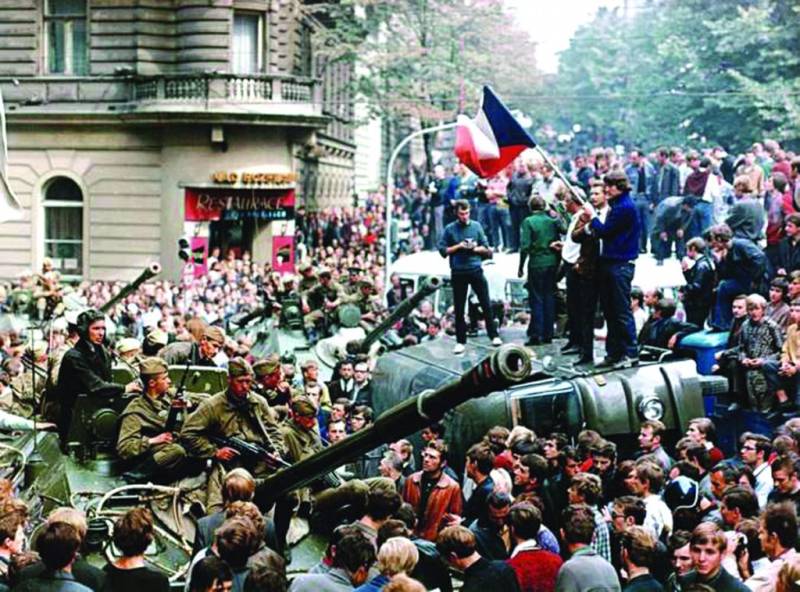
This photograph shows Czechs confronting Soviet soldiers in Prague, in August 1968. Soviet forces had invaded Czechoslovakia to crush the reform movement known as the Prague Spring.
Prague Spring was a brief period of liberalization in Czechoslovakia under Alexander Dubček in 1968. Soon after he became first secretary of the Czechoslovak Communist Party on January 5, 1968, Dubček granted the press greater freedom of expression; he also rehabilitated victims of political purges during the Joseph Stalin era. In April he promulgated a sweeping reform program that included autonomy for Slovakia, a revised constitution to guarantee civil rights and liberties, and plans for the democratization of the government. Dubček claimed that he was offering “socialism with a human face.” By June many Czechs were calling for more rapid progress toward real democracy. Although Dubček insisted that he could control the country’s transformation, the Soviet Union and other Warsaw Pact countries viewed the developments as tantamount to counterrevolution. On the evening of August 20, Soviet armed forces invaded the country and quickly occupied it. As hard-line communists retook positions of power, the reforms were curtailed, and Dubček was deposed the following April.
Prague Spring was a brief period of liberalization in Czechoslovakia under Alexander Dubček in 1968. Soon after he became first secretary of the Czechoslovak Communist Party on January 5, 1968, Dubček granted the press greater freedom of expression; he also rehabilitated victims of political purges during the Joseph Stalin era. In April he promulgated a sweeping reform program that included autonomy for Slovakia, a revised constitution to guarantee civil rights and liberties, and plans for the democratization of the government. Dubček claimed that he was offering “socialism with a human face.” By June many Czechs were calling for more rapid progress toward real democracy. Although Dubček insisted that he could control the country’s transformation, the Soviet Union and other Warsaw Pact countries viewed the developments as tantamount to counterrevolution. On the evening of August 20, Soviet armed forces invaded the country and quickly occupied it. As hard-line communists retook positions of power, the reforms were curtailed, and Dubček was deposed the following April.

